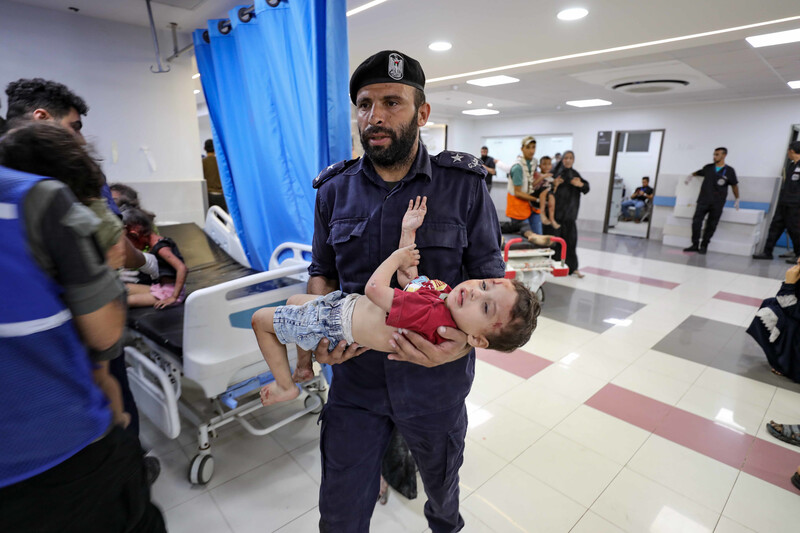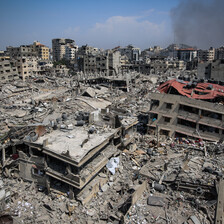The Electronic Intifada 22 May 2024

A police officercarries a wounded child into al-Shifa hospital on 11 October, when Gaza’s biggest hospital was still operational.
APA imagesI remember when the shelling intensified around our home.
It was shortly after 7 October, and it was when I first realized what we were facing.
My colleague, Dr. Yousef, had appealed for help through the doctors’ WhatsApp group after they were targeted near us and couldn’t find a way back to al-Shifa hospital.
I tried contacting the ambulance teams, civil defense, Red Cross, and Red Crescent, but I didn’t receive any positive response as intense bombardment in the area hindered their arrival.
It was a sign of things to come.
I remember the first case I encountered back then at al-Shifa hospital, where I was undergoing training as a medical intern in the obstetrics and gynecology department.
It is as if it happened today, even though it took place 200 days ago. A newly married young woman whose house had been bombed, claiming the lives of her husband and everyone else there except her, was in a state of severe shock when she was brought to the hospital.
She was first taken to the emergency department, where one of her feet had to be amputated. She also had a fracture in her hand and scars across her body.
At the obstetrics and gynecology department, we discovered that she was pregnant but that the fetus had died. It was very difficult to tell her, and she remained in a state of shock after learning the news.
Shortly after that, the Israeli military ordered us to evacuate to the south. It was the morning of 13 October.
When I got to Khan Younis, I immediately started working in the emergency department at al-Nasser hospital, where doctors were urgently needed and where, later, a mass grave was discovered after the Israeli military laid siege to the compound in February.
The plight of the Abu Shamaleh family stands out in my mind. The injuries, especially those of their beautiful girls, were extremely severe. Cosmetic surgeons were called in for immediate intervention.
I also remember the hundreds of patients evacuated from al-Shifa Hospital whose wounds had become infected. No attention was given to them, since staff lacked the necessary medications to treat them.
Without gasoline and diesel, we had to walk miles to the hospital from where we were sheltering.
During night shifts, my colleagues and I would clean the treatment rooms during the few calm moments and sleep on chairs.
A senior doctor there, Abdullah, who was with us on duty those first days, was targeted when he left for home one day. He returned to the hospital as a patient.
He stayed in the intensive care unit for a few days before passing away from the injuries he suffered.
It is difficult to witness all this pain. But as medical professionals, we are committed to providing care and to remain at our posts whatever the situation.
The memories still haunt me.
Hadeel Albarrawi is a medical student in Gaza.



